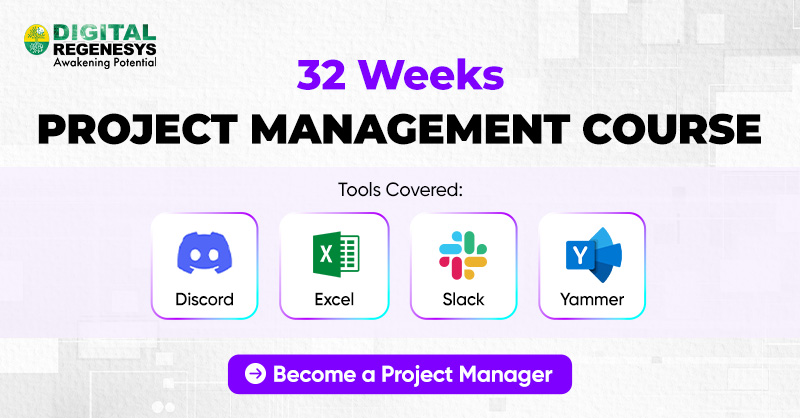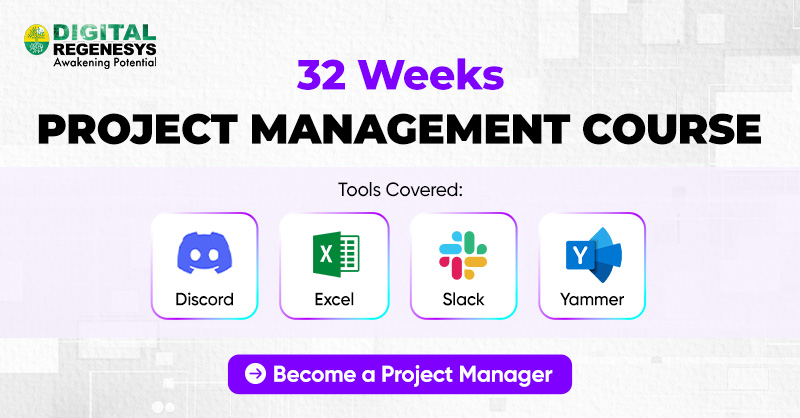Learn Why Cost Management in Project Management Is Essential for Success

Cost management is a crucial aspect of project management that ensures projects are completed within the approved budget while meeting the desired goals. It involves a series of processes such as cost estimation, budgeting, and cost control, all of which play an important role in managing a project’s finances. Effective cost management helps project managers avoid financial challenges and ensure that resources are used efficiently. With the right planning and control, projects can stay on track and deliver value without exceeding financial limits.
To ensure project success, it is essential to understand the importance of cost management in project management. It involves practices and techniques like estimating, budgeting, and controlling costs. Project managers must be aware of the cost management challenges to manage them with practical solutions timely. Additionally, understanding and applying cost management principles is essential for project success, helping managers deliver projects on time, within budget, and with stakeholder satisfaction.
In this article, we will learn what is cost management and why it is important. We will explore its key components, challenges and methods.
What is Cost Management in Project Management?
Cost management in project management is a systematic approach that ensures projects are completed within the approved budget while achieving the desired outcomes. It involves several interrelated processes, including planning, estimating, budgeting, and controlling costs. This framework allows project managers to maintain financial control throughout the project development. Cost estimation and budgeting in project management are one of the major components of cost management.
Key components of cost management are discussed below:
- Cost Estimation: This is the first step in the cost management process, where project managers assess the resources and expenses necessary to complete the project. Cost estimation depends on various techniques and historical data to predict financial requirements accurately. Precise estimations are crucial for developing realistic budgets and facilitating resource allocation.
- Cost Budgeting: Once costs are estimated, the next step is to allocate these estimated costs to various project activities and phases. Budgeting involves creating a detailed financial plan that outlines how much money will be spent on different tasks. This phase is critical because it establishes a baseline against actual spending, enabling project managers to track expenditures.
- Cost Control: This component involves monitoring actual expenditures and performance against the budget throughout the project. Here, project managers understand what is cost control in project management and how it is used to identify variances between planned and actual costs. By doing so, they can make necessary adjustments, such as reallocating resources or revising budgets, to ensure the project stays on track financially.
Learn What is Product Management. Get Complete Details Here!

Project Cost Management Methods
To ensure projects are effectively managed, several cost management methods can be employed. By applying the given methods, project managers can enhance the accuracy of their cost management in project management, which leads to more successful project outcomes. The following are the cost management methods that are commonly used in project management.
- Top-down Estimating: This method involves getting a rough cost estimate based on expert knowledge or similar past projects. It’s often faster since it uses general information, but it might miss important details specific to the current project, which can lead to some inaccuracies.
- Bottom-up Estimating: This approach involves estimating the cost for each task or part of the project and then adding them all up to get the total budget. It gives a detailed and accurate estimate, but it takes time because it requires a good understanding of all project activities.
- Parametric Estimating: This technique calculates costs based on historical data and other factors. For example, if past data shows that a certain type of project costs $400 per square foot, this rate can be applied to estimate costs for the current project. It works well when there is plenty of reliable data available.
- Three-point Estimation: This method considers the uncertainty in cost estimates by looking at three possibilities: best-case (optimistic), worst-case (pessimistic), and most likely costs. It combines these scenarios to get a more realistic estimate. This approach helps project managers avoid potential risks and prepare for unexpected situations.
Read our article – What is Risk Management in Project Management Here!
Why is Cost Management Important in Project Management?
Effective cost management in project management is essential because it helps ensure that a project stays within its financial limits, minimises unexpected expenses, and maximises value for stakeholders. By closely monitoring costs, project managers can make informed decisions that prevent overspending and optimise resource use. Additionally, good cost management strengthens accountability, supports planning accuracy, and contributes to the project’s overall success. Below are various important reasons why cost management is crucial in project management:
- Budget Adherence: One of the primary goals of cost management is to ensure that projects remain within their allocated budgets. Effective cost management helps prevent overspending, which can put the project’s success and profits at risk. Sticking to budgets also encourages team members to be responsible, as everyone is aware of the financial limits.
- Resource Allocation: Proper cost management ensures resources are used in the best way, so funds are spent efficiently. By tracking where money is being spent, project managers can direct resources to areas needing extra support or identify tasks that may need to be reviewed if they aren’t performing well.
- Informed Decision-Making: Accurate cost estimates give project managers insights that help them make informed decisions. When they understand project costs, managers can weigh options, consider the impact of changes, and adjust strategies as needed. This helps manage risks and improves project outcomes.
- Stakeholder Confidence: Good cost management builds trust with stakeholders by showing that the project is financially sound and reliable. Clear communication about budgets, estimates, and spending reassures stakeholders that their investments are being managed wisely. When stakeholders see costs are under control, they are more likely to support the project.
How to Create a Cost Management Plan?
A cost management plan in project management is essential for tracking and controlling a project’s finances from start to finish. By setting clear guidelines for budgeting, spending, and resource allocation, a cost management plan helps project managers keep costs on track, avoid potential issues, and make adjustments as needed. Below are the potential steps involved in creating a cost management plan:
- Define Cost Management Objectives: Start by outlining the goals of the cost management plan, focusing on staying within budget, tracking finances closely, and meeting reporting needs. Clearly defined objectives provide direction and establish criteria for analysing success.
- Establish Cost Estimation Techniques: Choose the cost estimation methods to use, such as top-down, bottom-up, parametric, or three-point estimation. Selecting the right methods based on project complexity and available data can improve accuracy in estimating costs.
- Develop a Budget: Allocate resources to each project task to create a detailed budget. The budget should categorise costs, such as labour, materials, and overhead, to present a clear view of financial requirements.
- Outline Cost Control Procedures: Define how costs will be monitored and controlled throughout the project. This includes regular review and reporting to compare actual spending against the budget. Effective cost control procedures allow timely adjustments to prevent budget overruns.
- Engage Stakeholders: Involve key stakeholders in creating the cost management plan to ensure their support and alignment. Their input can provide useful insights and help spot financial risks early on in the project.
How to Calculate Project Cost?
Calculating the project cost is an important step of cost management in project management, as it helps determine how much money is needed to complete the project successfully. A clear understanding of project costs allows managers to plan properly, secure enough funds, and track spending throughout the project. This process includes identifying all possible costs, such as direct costs like labour and materials, as well as indirect costs, such as overhead and administrative expenses.
The following are the steps involved in calculating project cost:
- Identify Costs: Begin by listing all potential costs associated with project activities, including direct costs (labour, materials) and indirect costs (overhead, administration). This identification helps ensure that no expenses are overlooked.
- Estimate Costs: Use appropriate estimation methods to determine the cost of each activity. Engage team members who have experience in similar projects to provide input on cost estimates. This collaboration can enhance accuracy and identify any potential oversights.
- Aggregate Costs: Once costs for individual activities have been estimated, sum them to obtain the total project cost. This total serves as the basis for budget development and financial planning.
- Adjust for Contingencies: Include a contingency reserve for unforeseen expenses, which is essential for managing risks. A contingency reserve allows for flexibility in the budget, ensuring that unexpected costs do not delay the project. This reserve should be based on the project’s complexity and risk profile.
Understand the importance of Quality Management in Project Management Here!
What are the Challenges of Cost Management?
Cost management involves various challenges that project managers must address to ensure financial success. These challenges can arise from factors such as unexpected changes, inaccurate estimates, or limited resources, all of which can impact the project’s budget and overall outcome.
Cost management in project management may involve the following challenges that project managers must handle:
- Inaccurate Estimates: Poor estimation methods can lead to spending more money than planned and misusing resources. Inaccurate estimates can happen because of a lack of data, inexperience, or unrealistic assumptions. To reduce this risk, project managers should use different estimation methods and involve team members in the process.
- Changing Requirements: Changes in the project scope, often due to feedback from stakeholders or shifting priorities, can have a significant impact on costs. It is important to have a flexible cost management plan that can adjust to these changes. Regularly reviewing the project’s scope and budget can help identify cost issues early.
- Limited Resources: Limited budgets or staff can make cost management difficult. When resources are limited, project managers may struggle to meet project goals within the financial limits. It is important to communicate effectively with stakeholders about these limitations to manage their expectations.
- Stakeholder Expectations: Balancing what stakeholders expect with the financial reality of the project can be challenging. Stakeholders may have different priorities, which can lead to conflicts over managing costs. Clear communication and strong negotiation skills are key to making sure everyone’s expectations align with the budget.

Learn Project Management With Digital Regenesys
Individuals looking to succeed in project management and master cost management practices should consider enrolling in Digital Regenesys’s Project Management Course. This online course covers essential concepts, tools, and techniques for effective project management, including cost management. Some of the significant reasons why you should take this course at Digital Regenesys are as follows:
- Practical Skills: Focuses on real-world applications of project management techniques that help students confidently handle project challenges.
- Expert-Led Learning: Courses are led by experienced instructors with deep industry knowledge to ensure that students receive insights from experts.
- Flexible Online Learning: Learn at your own pace with a flexible, fully online course structure that accommodates working professionals and students alike.
- Digital Regenesys Certification: Gain a globally recognised certification upon course completion. This adds value to your CV and enhances career prospects in project management.
In conclusion, cost management in project management is crucial for achieving project success. By understanding the principles of cost estimation, budgeting, and control, project managers can ensure that their projects are completed within budget while meeting stakeholder expectations. Effective cost management not only contributes to project success but also improves overall organisational performance. To enhance your skills in project management, consider exploring the Project management Course offered by Digital Regenesys.
Last Updated: 4 September 2025